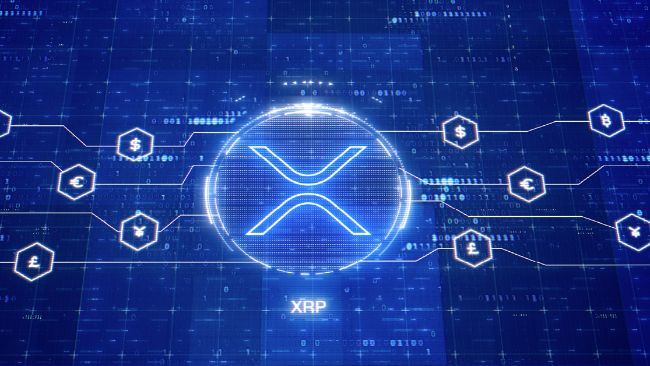After defeating the US Securities and Trade Fee over the standing of XRP, Ripple took a mysterious motion. We have now no intention of speeding to go public.
As an alternative, the corporate stays non-public. This selection says extra concerning the risky relationship between crypto corporations and public markets than Ripple’s funds.
In July 2023, a courtroom dominated that XRP shouldn’t be a safety when offered on a public alternate. The landmark victory cleared what many thought-about the final main hurdle earlier than going public.
After years of litigation, Ripple has been vindicated. In keeping with commonplace metrics, this was the time for startups to boost cash, reward backers, discover capital markets, and go public.
However Ripple refused. The corporate acknowledged this month that it has “no plans or timelines” for an IPO. President Monica Lengthy emphasised that Ripple has roughly $500 million in funding and a personal valuation of almost $40 billion. She believes that Ripple would not want a public market to develop.
This selection units Ripple aside from different crypto corporations which have paid a value to go public.
Classes discovered from Coinbase, Robinhood, and IPOs.
Coinbase’s direct itemizing in 2021 was seen as a milestone for cryptocurrencies. For some time, it appeared like successful. However even because the broader cryptocurrency market gained momentum in 2025, Coinbase inventory lagged, falling about 30% earlier this yr. This disconnect raises questions concerning the public market’s skill to worth crypto-native corporations.
Robinhood, a significant US cryptocurrency buying and selling platform, confronted related issues. Inventory costs weren’t steady through the 2021 IPO. Efficiency deteriorated on account of market cycles, poor buying and selling and regulatory points. Each corporations attracted consideration within the quick time period, however had been unstable in the long run.
Ripple avoids this by selecting to stay non-public. Staying away from the general public markets protects them from volatility in returns and stress from inventory traders new to cryptocurrencies.
The quarterly treadmill is hard, even for established corporations. Cryptocurrency corporations with risky revenues and regulatory constraints are notably in danger.
Ripple additionally holds a considerable amount of XRP and depends closely on its ecosystem. As seen elsewhere, listings could cause tensions between token holders and fairness traders.
Stockholders might power Ripple to monetize its XRP reserves or change its worth proposition. Remaining non-public maintains flexibility and protects token administration from public scrutiny.
Regulatory uncertainty stays. Though Ripple received in opposition to the SEC, the broader regulatory battle continues. The SEC is pursuing different crypto circumstances, however Congress lacks a uniform regulation. Going public can imply extra disclosure and regulatory oversight. Staying non-public offers Ripple room to maneuver.
Most significantly, Ripple doesn’t require funding. A $500 million increase at a $40 billion valuation means there shall be no liquidity crunch. Non-public capital permits Ripple to scale with out involving public traders or altering inside governance.
Severe tensions between crypto and public markets
Ripple’s hesitation exposes the uncomfortable fact that public markets usually are not constructed for crypto-native corporations. Conventional traders need predictable returns, steady income, and regulatory readability. Cryptocurrency corporations trip risky cycles, make use of complicated tokenomics, and function in a shifting authorized panorama.
This mismatch is necessary. Even when core development is powerful, public markets penalize corporations when buying and selling declines or rules loom. Cryptocurrency corporations usually are not rewarded on fundamentals like expertise corporations. As an alternative, it reacts to market sentiment and the worth of the token.
Which means that an organization’s core enterprise, similar to enterprise blockchain providers, custodial infrastructure, and cross-border funds, could be overshadowed by token fluctuations or coverage modifications. In a personal setting, these dangers are simpler to handle. In public, they’re typically magnified or misunderstood.
Expectations from token holders add complexity. Cryptocurrency customers typically act like shareholders with out proudly owning any shares. They request updates, interact with initiatives, and problem perceived discrepancies.
Going public may power Ripple to strike a steadiness between the inventory market and the token neighborhood, a uncommon feat that few corporations have ever managed to drag off.
Ripple’s transfer is a deliberate delay, not a withdrawal. As soon as listed, issues should change: clearer rules, extra knowledgeable traders, and a steady macro setting. By retaining it non-public till then, Ripple will have the ability to management its course.
The trade’s conclusion is obvious. Itemizing shouldn’t be assured. Cryptocurrency corporations should weigh timing, governance, and model. Unconventional metrics and lively communities make itemizing even greater.
Ripple received the SEC. Nonetheless, the battle for mainstream legitimacy and scalability stays. Avoiding Wall Avenue for now might show to be a sensible transfer.


